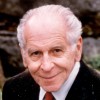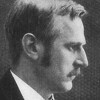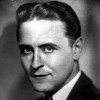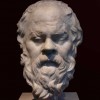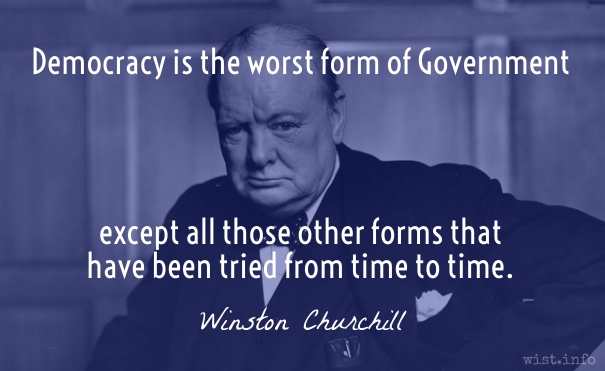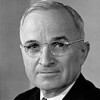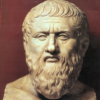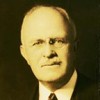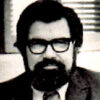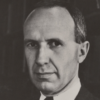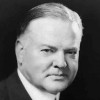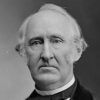The lack of objectivity, as far as foreign nations are concerned, is notorious. From one day to another, another nation is made out to be utterly depraved and fiendish, while one’s own nation stands for everything that is good and noble. Every action of the enemy is judged by one standard — every action of oneself by another. Even good deeds by the enemy are considered a sign of particular devilishness, meant to deceive us and the world, while our bad deeds are necessary and justified by our noble goals which they serve.
Doubt is to certainty as neurosis is to psychosis. The neurotic is in doubt and has fears about persons and things; the psychotic has convictions and makes claims about them. In short, the neurotic has problems, the psychotic has solutions.
The most beautiful thing we can experience is the mysterious. It is the source of all true art and science. He to whom this emotion is a stranger, who can no longer pause to wonder and stand rapt in awe, is as good as dead: his eyes are closed. This insight into the mystery of life, coupled though it may be with fear, has also given rise to religion. To know that what is impenetrable to us really exists, manifesting itself as the highest wisdom and the most radiant beauty which our dull faculties can comprehend only in their most primitive forms — this knowledge, this feeling, is at the center of true religiousness. In this sense, and in this sense only, I belong in the ranks of devoutly religious men.
Albert Einstein (1879-1955) German-American physicist
“What I Believe,” Forum and Century (Oct 1930)
(Source)
Einstein crafted and recrafted his credo multiple times in this period, and specifics are often muddled by differing translations and by his reuse of certain phrases in later writing. The Forum and Century entry appears to be the earliest. Some important variants:
The most beautiful experience we can have is the mysterious. It is the fundamental emotion that stands at the cradle of true art and true science. Whoever does not know it and can no longer wonder, no longer marvel, is as good as dead, and his eyes are dimmed. It was the experience of mystery -- even if mixed with fear -- that engendered religion. A knowledge of the existence of something we cannot penetrate, our perceptions of the profoundest reason and the most radiant beauty, which only in their most primitive forms are accessible to our minds: it is this knowledge and this emotion that constitute true religiosity. In this sense, and only this sense, I am a deeply religious man.
— "The World As I See It [Mein Weltbild]" [tr. Bargmann (1954)]
The fairest thing we can experience is the mysterious. It is the fundamental emotion which stands at the cradle of true art and true science. He who knows it not and can no longer wonder, no longer feel amazement, is as good as dead, a snuffed-out candle. It was the experience of mystery -- even if mixed with fear -- that engendered religion. A knowledge of the existence of something we cannot penetrate, of the manifestations of the profoundest reason and the most radiant beauty, which are only accessible to our reason in their most elementary forms -- it is this knowledge and this emotion that constitute the truly religious attitude; in this sense, and in this alone, I am a deeply religious man.
— "The World As I See It [Mein Weltbild]" [tr. Harris (1934)]
The most beautiful and deepest experience a man can have is the sense of the mysterious. It is the underlying principle of religion as well as all serious endeavor in art and science. He who never had this experience seems to me, if not dead, then at least blind. To sense that behind anything that can be experienced there is a something that our mind cannot grasp and whose beauty and sublimity reaches us only indirectly and as a feeble reflection, this is religiousness. In this sense I am religious.
[Das Schönste und Tiefste, was der Mensch erleben kann, ist das Gefühl des Geheimnisvollen. Es liegt der Religion sowie allem tieferen Streben in Kunst und Wissenschaft zugrunde. Wer dies nicht erlebt hat, erscheint mir, wenn nicht wie ein Toter, so doch wie ein Blinder. Zu empfinden, dass hinter dem Erlebbaren ein für unseren Geist Unerreichbares verborgen sei, dessen Schönheit und Erhabenheit uns nur mittelbar und in schwachem Widerschein erreicht, das ist Religiosität. In diesem Sinne bin ich religiös.]
— Variant in "My Credo [Mein Glaubensbekenntnis]" (Aug 1932)
See parallel sentiments here, here, and here.
If it has to choose who is to be crucified, the crowd will always save Barabbas.
[S’il faut choisir un crucifié, la foule sauve toujours Barabbas.]
Jean Cocteau (1889-1963) French writer, filmmaker, artist
“Le Coq et l’Arlequin” (1918), Le Rappel à l’ordre (1926)
(Source)
About adjectives: all fine prose is based on the verbs carrying the sentences. They make sentences move.
F. Scott Fitzgerald (1896-1940) American writer [Francis Scott Key Fitzgerald]
Letter, The Crack-Up, ed. Edmund Wilson (1945) p.303
Source text
I never blame failure — there are too many complicated situations in life — but I am absolutely merciless toward lack of effort.
F. Scott Fitzgerald (1896-1940) American writer [Francis Scott Key Fitzgerald]
Letter, The Crack-Up, ed. Edmund Wilson (1945) p.302
Source text
For the partisan, when he is engaged in a dispute, cares nothing about the rights of the question, but is anxious only to convince his hearers of his own assertions.
“Imagine that you are creating a fabric of human destiny with the object of making men happy in the end, giving them peace and rest at last, but that it was essential and inevitable to torture to death only one tiny creature — that baby beating its breast with its fist, for instance — and to found that edifice on its unavenged tears, would you consent to be the architect on those conditions? Tell me, and tell the truth.”
“No, I wouldn’t consent,” said Alyosha softly.
You should have disagreements with your leaders and your colleagues, but if it becomes immediately a question of questioning people’s motives, and if immediately you decide that somebody who sees a whole new situation differently than you must be a bad person and somehow twisted inside, we are not going to get very far in forming a more perfect union.
William Jefferson "Bill" Clinton (b. 1946) American politician, US President (1993-2001)
Inaugural Dole Lecture, U. of Kansas (21 May 2004)
And I think America, if we’re ever going to truly defeat terror without changing the character of our own country or compromising the future of our children, has got to not only say, “Okay, I want to shoulder my responsibilities, I want to create my share of opportunities” but we have to find a way to define the future in terms of a humanity that goes beyond our country, that goes beyond any particular race, that goes beyond any particular religion.
William Jefferson "Bill" Clinton (b. 1946) American politician, US President (1993-2001)
Inaugural Dole Lecture, U. of Kansas (21 May 2004)
Administrivia: Swoosh!
I’ve installed Fast Search on this blog and — yow! Searches that used to take take 15, 30, 60 seconds with the out-of-the-box search capabilities all come back in just 2 or 3. It’s fantastic.
There are a few limitations vs. the normal MT search. It doesn’t do comments (yet) — but that’s not really a problem here. It’s search parameters are a bit more limited — no Regex, no Case Sensitivity, no OR or NOT.
But if you’re looking for a word or two in a quotation here (or a fragment of 4 letters or more), the new Search will rock your world.
I’ll probably be installing it (as an option) on my other blogs. But the best fit was here. If it continues to perform the way it has over the next week, I’ll definitely be dropping something in the tip jar.
Many forms of Government have been tried, and will be tried in this world of sin and woe. No one pretends that democracy is perfect or all-wise. Indeed, it has been said that democracy is the worst form of Government except all those other forms that have been tried from time to time.
Put an underdog on top and it makes no difference whether his name is Russian, Jewish, Negro, Management, Labor, Mormon, or Baptist he goes haywire. I’ve found very, very few who remember their past condition when prosperity comes.
Administrivia: Sourcing notes
Some evolving thoughts here on noting the sources of quotation (as part of their citations).
In my old Access database, I had a column for in the quotes table for “source,” where I would put where I’d found something — not necessarily the origin of the quote, but where I’d gotten it (in case someone said, “Hey, where did that come from?”). Often it was a hyperlink — sometimes to the article in question (e.g., a quote from someone in Time magazine), or to a Bartleby entry, or to a primary source.
(If someone is only quoted in a second party’s work, I’ve often shied away from using that work as the citation, both because of the space involved and because it’s a secondary source. I have not been consistent about this, however.)
I also used the field for notes about the quotation — “Not found in the works of Fred Smith,” or “Also attributed to Joe Bloggs,” or “Sometimes given as ‘alternative translation.'”
I hadn’t displayed that material in my previous WIST collection, but I made a conscious decision this time out to do so. It’s the follow-up sans serif text that appears underneath some quote. In some cases it’s an URL, in other cases it’s notes on the source.
One thing I’ve discovered, though, is that I can now easily make actual hyperlinks out of this material. Rather than just giving the URL to the Bartleby page, I can say “Source” and make that a hyperlink to that URL. That may clean up the look of things, and allow for some more even useful ways of putting stuff in here. I’d do something similar in the actual citation (e.g., link to the essay or book or whatever), but the “Title” field in MT isn’t as suited to that (just as the Category Description isn’t well suited to putting in a hyperlink for the Wiki page for an author).
I don’t plan on en masse going back and cleaning these things up, but I will do a bit of cleaning as I go along in adding new and updating old material.
Sufficient to today are the duties of today. Don’t waste life in doubts and fears; spend yourself on the work before you, well assured that the right performance of this hour’s duties will be the best preparation for the hours and ages that will follow it.
Ralph Waldo Emerson (1803-1882) American essayist, lecturer, poet
“Immortality,” Letters and Social Aims (1876)
(Source)
Administrivia: Performance issues
I’m not happy about the peformance going to individual author pages. In part that’s because archives are the most complex item for MT serve up, and the individual authors are categories.
I’m seriously considering turning the normal author categories into permanent (static) files, rather than dynamic. That should dramatically improve performance, but …
- The disk storage will go way up.
- Posting new stuff will take a bit longer (an added file to generate).
- category rebuilds will seriously churn things up even more.
- I do occasionally rename categories (authors) – will that leave obsolete files out there. Yeah, probably. Trivial issue, I think, but worth considering.
I’m most concerned with #1 and #3, esp. #3. It irks me to do rebuilds, and the category rebuild is already a huge churn.
I will ponder this.
We hold these truths to be sacred & undeniable; that all men are created equal & independant, that from that equal creation they derive rights inherent & inalienable, among which are the preservation of life, & liberty, & the pursuit of happiness; that to secure these ends, governments are instituted among men, deriving their just powers from the consent of the governed; that whenever any form of government shall become destructive of these ends, it is the right of the people to alter or to abolish it, & to institute new government, laying it’s foundation on such principles & organising it’s powers in such form, as to them shall seem most likely to effect their safety & happiness.
Thomas Jefferson (1743-1826) American political philosopher, polymath, statesman, US President (1801-09)
“Declaration of Independence,” original rough draft (Jun 1776)
(Source)
Compare to the final version, as modified and adopted by the Continental Congress.
I am well aware of the Toil and Blood and Treasure, that it will cost Us to maintain this Declaration, and support and defend these States. — Yet through all the Gloom I can see the Rays of ravishing Light and Glory. I can see that the End is more than worth all the Means. And that Posterity will tryumph in that Days Transaction, even altho We should rue it, which I trust in God We shall not.
John Adams (1735-1826) American lawyer, Founding Father, statesman, US President (1797-1801)
Letter to Abigail Adams (1776-07-03)
(Source)
Administrivia: Administrivia in the sidebar
A moderate design shift for the front page. Rather than having the most recent Adminstrivia post showing at the top of the first page, I’ll have an excerpt of the most recent Adminstrivia in the sidebar on the front page — something visible for those looking for such things, but not getting in the way of the quotations.
Because, after all — the quotations are what it’s all really about.
Jellicle Cats come out tonight,
Jellicle Cats come one come all:
The Jellicle Moon is shining bright —
Jellicles come to the Jellicle Ball.
For some are sane and some are mad
And some are good and some are bad
And some are better, some are worse —
But all may be described in verse.
Anger and jealousy can no more bear to lose sight of their objects than love.
George Eliot (1819-1880) English novelist [pseud. of Mary Ann Evans]
The Mill on the Floss (1860)
(Source)
If you want a war, nourish a doctrine. Doctrines are the most frightful tyrants to which men are ever subject, because doctrines get inside a man’s reason and betray him against himself. Civilized men have done their fiercest fighting for doctrines. The reconquest of the Holy Sepulcher, “the balance of power,” “no universal dominion,” “trade follows the flag,” “he who holds the land will hold the sea,” “the throne and the altar,” the revolution, the faith — these are the things for which men have given their lives. What are they all? Nothing but rhetoric and phantasms.
William Graham Sumner (1840-1910) American minister, sociologist, anthropologist.
“War” (1903), War and Other Essays [ed. A. Keller (1911)]
(Source)
Religious leaders too often think that if they just got the government to pay for their programs, they could do so much more good. But they should also know too well from bitter experience that big donors often have strings attached to their donations, and Uncle Sam is the biggest donor of all. Accept his money, even if he seems to be nodding in agreement with you, and sooner or later you’ll find you’ve compromised away your mission and become too dependent on his largesse to get it back. Churches should keep away from the state, not just for the good of the state, but for their own good as well.
There’s always a temptation for the Church to try and take on the power of the state. There are all those souls to save, don’t you know, and all those rules to pass to make sure they are. But politics, statecraft, lawmaking, power brokering — those engines all run on compromise, and compromise is the worst enemy of principle, which is, after all, what the Church is supposed to be about to be about. It’s hard to be a moral compass when you keep turning from your course.
Church and state are drawn to each other like moths and flame, and when they are, it’s always about power — power over the population, power over souls. power over votes. But religious and political leaders alike should remember what happens when the moth and flame finally get together.
… I believe that, if a triangle could speak, it would say, in like manner, that God is eminently triangular, while a circle would say that the divine nature is eminently circular. Thus each would ascribe to God its own attributes, would assume itself to be like God, and look on everything else as ill-shaped.
The establishment of religious freedom was no less momentous an achievement than the clearing of the great forest or the winning of independence, for the twin doctrines of separation of church and state and liberty of individual conscience are the marrow of our democracy, if not indeed America’s most magnificent contribution to the freeing of Western man.
Administrivia: So … what next?
So now that the dust has more or less settled on the WIST redesign comes the question, “what next?”
In particular, options include:
1. Continue to add more quotes.
2. Revisit existing quotes without decent citation and work on cleaning those up.
3. Improve the search speed.
4. Try to figure out a “quote of the day” functionality.
5. Come up with a good resources page with the current places I get or research quotes from.
Anything else you can think of? This site is for your use, after all.
Two previously-requested options are not likely:
1. Allow users to add quotes: Sorry, this isn’t Wikiquote (which is, in fact, a wonderful site). I’d rather not open things up to the world to break/spam the site. Though, that said, if you have a quote you want to see in here, leave it in a comment in some post (I’ll see it) or contact me by e-mail, and I’ll see what I can do. (If I don’t care for the quotation, I won’t use it, but there’s no accounting for my tastes).
2. Tag/categorize quotes: Not only would this be a massive task with the existing 5K-odd quotes at the moment, but I’ve always found such schemes and taxonomies to be somewhat arbitrary and rarely complete. Honestly, I find word searches a better way to find what one’s looking for. There may be ways of opening that up to the public — but that runs smack-dab into the spamming thing again.
if you are writing without zest, without gusto, without love, without fun, you are only half a writer. It means you are so busy keeping one eye on the commercial market, or one ear peeled for the avant-garde coterie, that you are not being yourself. You don’t even know yourself. For the first thing a writer should be is — excited. He should be a thing of fevers and enthusiasms. Without such vigor, he might as well be out picking peaches or digging ditches; God knows it’d be better for his health.
Ray Bradbury (1920-2012) American writer, futurist, fabulist
“The Joy of Writing,” Zen & the Art of Writing and The Joy of Writing, Capra Chapbook No. 13 (1973)
(Source)
Reprinted in Bradbury, Zen in the Art of Writing (1990).
Those words, “temperate and moderate,” are words either of political cowardice, or of cunning, or seduction. A thing moderately good, is not so good as it ought to be. Moderation in temper, is always a virtue; but moderation in principle, is a species of vice.
Thomas Paine (1737-1809) American political philosopher and writer
“Letter Addressed to the Addressers on the Late Proclamation” (1791)
(Source)
EARL OF SANDWICH: ‘Pon my honor, Wilkes, I don’t know whether you’ll die on the gallows or of the pox.
JOHN WILKES: That must depend my Lord, upon whether I first embrace your Lordship’s principles, or your Lordship’s mistresses.
The great enemy of clear language is insincerity. When there is a gap between one’s real and one’s declared aims, one turns as it were instinctively to long words and exhausted idioms, like a cuttlefish spurting out ink.
George Orwell (1903-1950) English writer [pseud. of Eric Arthur Blair]
“Politics and the English Language,” Horizon, (Apr. 1946)
You convey too great a compliment when you say that I have earned the right to the presidential nomination. No man can establish such an obligation upon any part of the American people. My country owes me no debt. It gave me, as it gives every boy and girl, a chance. It gave me schooling, independence of action, opportunity for service and honor. In no other land could a boy from a country village, without inheritance or influential friends, look forward with unbounded hope. My whole life has taught me what America means. I am indebted to my country beyond any human power to repay.
If he is infinitely good, what reason should we have to fear him? If he is infinitely wise, why should we have doubts concerning our future? If he knows all, why warn him of our needs and fatigue him with our prayers? If he is everywhere, why erect temples to him? If he is just, why fear that he will punish the creatures that he has filled with weaknesses? If grace does everything for them, what reason would he have for recompensing them? If he is all-powerful, how offend him, how resist him? If he is reasonable, how can he be angry at the blind, to whom he has given the liberty of being unreasonable? If he is immovable, by what right do we pretend to make him change his decrees? If he is inconceivable, why occupy ourselves with him? IF HE HAS SPOKEN, WHY IS THE UNIVERSE NOT CONVINCED? If the knowledge of a God is the most necessary, why is it not the most evident and the clearest?
Percy Bysshe Shelley (1792-1822) English poet
The Necessity of Atheism (1811)
Full text, 1813 ed. The text is followed by a citation of "Systeme de la Nature (1781)" (by Baron d'Holbach), but it's unclear whether, or what part of, this is being quoted by Shelley.
What a man believes may be ascertained, not from his creed, but from the assumptions on which habitually acts.
George Bernard Shaw (1856-1950) British playwright and critic
Man and Superman, “The Revolutionist’s Handbook,” “Religion” (1903)
(Source)
Artistic growth is, more than it is anything else, a refining of the sense of truthfulness. The stupid believe that to be truthful is easy; only the artist, the great artist, knows how difficult it is.
The last lesson a man ever learns is, that liberty of thought and speech is the right for all mankind; that the man who denies every article of our creed is to be allowed to preach just as often and just as loud as we ourselves. We have learned this, — been taught it by persecution on the question of slavery. No matter whose lips that would speak, they must be free and ungagged. Let us always remember that he does not really believe his own opinions, who dares not give free scope to his opponent. Persecution is really want of faith in our creed.
Wendell Phillips (1811-1884) American abolitionist, orator, social activist
“The Boston Mob,” speech, Antislavery Meeting, Boston (21 Oct 1855)
(Source)
"On the Twentieth Anniversary of the Mob of October 21, 1835."
Administrivia: An unexpected benefit
A previously unexpected benefit of my new database / layout / etc. here at WIST has come to my attention. I can see, if I Google around a bit, various folks who have wholesale copy-pasted huge swathes of the previous version of WIST pages to their own quote pages. (It’s not quite spotted by the same trick as dictionary publishers who put in false words — but it’s related, if uintentional.)
Now, I don’t mind sharing the wealth. By the very nature of a quotations database, that would be silly. And heaven knows I’ve garnered quotes from a lot of places, online and off.
But … there’s a reason I have a Creative Commons “By” license off in the margin. If you copy stuff from here — especially big chunks o’ stuff — I do ask and expect some sort of attribution or link-back or hat-tip. Because the work I’ve put into gathering this info is a lot more than just copying and pasting stuff. I’ve spent a lot of time sourcing material, updating it, arranging it, etc. A few props wouldn’t be out of line.
And, at any rate, that sort of mass copying won’t be as feasible. Previous iterations of WIST had whole letters of the alphabet’s authors, with their quotes, on a page. Now only a given author’s quote are on a page, and each one has the author citation at the page top. So someone who wants to borrow something has to do a little bit of work to do so. That’s not intended to discourage finding and using quotations that you like — but it’s a nice unintended consequence that many, many hours or work cannot be simply copied with a single swipe of the mouse and a few clicks.
For we must consider that we shall be as a City upon a hill. The eyes of all people are upon us. Soe that if we shall deal falsely with our God in this work we have undertaken, and so cause him to withdraw his present help from us, we shall be made a story and a byword throughout the world.
John Winthrop (1588–1649) English Puritan, politician
“A Modell of Christian Charity” (1630)
Written aboard the Arbella during the voyage to Massachusetts.
There are similarities between absolute power and absolute faith: a demand for absolute obedience, a readiness to attempt the impossible, a bias for simple solutions — to cut the knot rather than unravel it, the viewing of compromise as surrender. Both absolute power and absolute faith are instruments of dehumanization. Hence, absolute faith corrupts as absolutely as absolute power.




